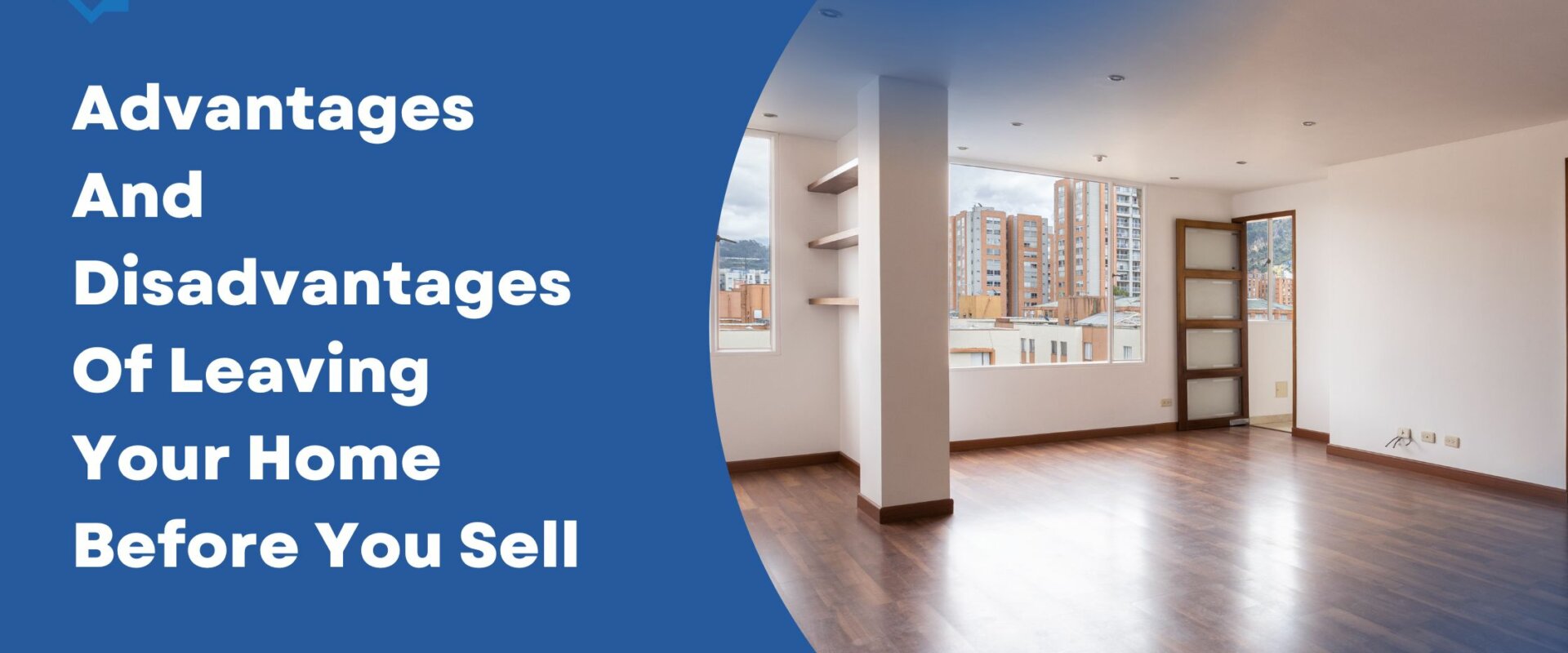
One of the things that a homeowner weighs when they’re about to sell their home is whether they should leave their home before they sell or come out in the market while they’re still in the home. Some people might think that it would definitely be more advantageous to leave town and move to another place and wait for the buyer with the best price for your home.
But some can’t afford to do this as they would need to get another mortgage only after they’ve sold their current home. In the state of Pennsylvania, for instance, people might be surprised to find out that there are good arguments either way for the best way to sell your house, whether it’s a vacant house or while you’re still there. Here are some of the pros and cons of selling a vacant home.
Pros Of Selling A Vacant Home
1. It’s Easier To Schedule Showings
One of the advantages of selling a vacant house is that it would be easier to schedule showings because there’s no one living in the house. When homeowners come out and list their property, they’d have to make time and accommodate whenever a prospective buyer wants to see the property. Since there are no occupants, the listing agent doesn’t have to wait for the lead’s available time before they can set up a showing schedule.
Here are some of the specific advantages to setting up a showing when a home for sale doesn’t have any occupants:
- The listing agent doesn’t have to ask for the best day and time when the seller could let in a prospective buyer during a showing.
- The buyer’s agent doesn’t have to match the buyer’s availability for the showing with the best day and time for the seller.
- The listing agent and buyer’s agent don’t have to keep matching the best day and time for the seller and buyer to do the showing.
- It’s not that difficult to look for a common time again just in case they need to reschedule the showing because they don’t have to factor in the schedule of any occupants.
Since there are no residents, both the listing agent and the buyer’s agent would find it easier to set up showings, staging, and other viewings and inspections by anyone who wants or needs to see the house. The seller can even set up a lock box which can be used by buyers and their agents who want to see the home, even if the seller or the listing agent is not available to go with them to view the home.
2. You Don’t Have To Clean Up All The Time
Another advantage of selling a vacant home is that you don’t have to feel obliged to clean up each time you have a prospective buyer. Since there’s no one living in the house, prospective buyers would surely understand if the home isn’t kept spick and span when they see the home for the showing. It will be understandable if the walls and some furniture are dusty or if a bit of mess is strewn in some parts or corners of the home.
It’s unavoidable for sellers who still live in their homes for sale to feel obliged to clean up whenever a buyer schedules a showing appointment with their listing agent or with them directly if they’re selling their home For Sale By Owner (FSBO). They feel it might create a bad impression on the buyer if their home is a mess when the buyer comes in for the showing. Others would even worry it might have a negative impact on the price offers that their property would fetch if their homes didn’t look that spruced up on showing day.
Here are some of the other things that sellers don’t have to worry about when they’re selling a vacant home:
- They don’t have to clean up their home each time a showing is scheduled.
- They don’t have to do deep cleaning every so often when someone wants to see the home for sale.
- They don’t have to think of what to do with their kids or toddlers who would still need a room where they can stay when the buyer comes.
- They don’t have to feel pressured to tidy up nooks and corners which they weren’t planning to clean up yet, such as storage rooms, garages, etc.
- They don’t have to think of interrupting their daily routines whenever a buyer or buyer’s agent says they want to see the home.
3. They Won’t Be Pressured Into Finding A New Home
Another advantage of selling a vacant home is that the seller’s family won’t have to feel pressured into finding a new home once the sale of their current home is closed between them and the buyer. Since they don’t live in the home, they don’t have to feel hurried into looking and closing on their next home as soon as the sale of their home is closed.
Some sellers already feel a lot of pressure when they come out in the market with their home, and some feel they have to accept the first fair offer, especially when they need the money since they still need to look for a new home and pay for it.
Cons Of Selling A Vacant House
- The House Would Feel Empty
One of the strongest disadvantages of selling a vacant home is that it would feel so empty and barren when a prospective buyer goes in to view the home. Part of what makes a home appealing is its warmth. When a buyer goes into a home, the buyer would immediately feel the warmth of the family which lives in the home. Just by seeing their things were strewn on the couch or carpet and their picture frames on table tops or television (TV) shelves, the buyer would get a sense of family life in that home, and it would somehow make the home come alive.
However, a vacant house would feel hollow and empty without any residents. All the buyer would see are the vast empty living room spaces. There won’t be any TV or couch and tables that could give the buyer a sense of how they arranged their furniture. The walls would look hollow and blank without any paintings or ornaments. The kitchen would look barren with only the sink and the kitchen cabinets. The dining hall wouldn’t hint at how people often converged there for meals and conversations.
2. You Still Have To Maintain A Vacant House
A second disadvantage of selling a vacant house is that it still has to be maintained because you haven’t sold it yet. Even though you and your family may no longer be residing in the vacant home, you’ll still have to ensure it’s well maintained. You’ll have to check on the home every now and then to see whether the plumbing still works and if there are major leaks. You also have to make sure the grass on the lawn is trimmed when they’ve grown too tall.
This task becomes even more critical whenever a natural disaster such as a hurricane, heavy flooding, or tornado hits the area where your vacant home for sale is located. Severe natural disasters or weather disturbances could cause major damage to some of the structures of your home. For one, falling branches or flying debris during a hurricane could hit your roof or windows. This could leave pierced roofing or broken window glass. Flooding could submerge your entire ground floor leaving a lot of silt or mud that could cause damage.
When a fire hits the neighborhood and spreads quickly, a vacant home would have no one to defend it from the fire that could be spreading too quickly. It might have sprinklers or fire suppression systems, but if its triggers don’t work or turn on during a fire, the spreading fire would most likely reach the empty, vacant home. When this happens, there would be no one in the home to manually bring out water hoses and try to fight the fire.
3. Buyers Might Think Seller Is Desperate
Another disadvantage of selling a vacant home is that it would tend to create the impression that the seller doesn’t have too many options. The buyer might wonder why the seller couldn’t sell the home before they left town. This could give ideas to some buyers that the seller would accept even low offers just to get rid of the home.
The buyer might also think that hidden damages turned off the previous buyers who looked at the home, for which reason the sale didn’t push through. The buyer might also think that the seller must be desperate to sell now that they’ve moved to another home, especially if they’ve moved to another city or maybe even out of state.
An additional disadvantage is that some home insurers would tend to charge higher premiums on vacant homes, perhaps because of the many hazards in a vacant house. This isn’t always true, but there are some instances when vacant homes are charged higher premiums.
Conclusion
Selling a vacant home has its advantages as well as its disadvantages. It depends on how the seller and their listing agent play up the home’s great features to fetch a high final sale price. Some advantages of selling a vacant home include giving the seller and listing agent greater leeway in setting up showings and bringing in buyers. But a vacant home would often come off as hollow and empty to a buyer who views the vast spaces of the living room, the empty bedrooms, and the sparse dining halls and kitchen.

